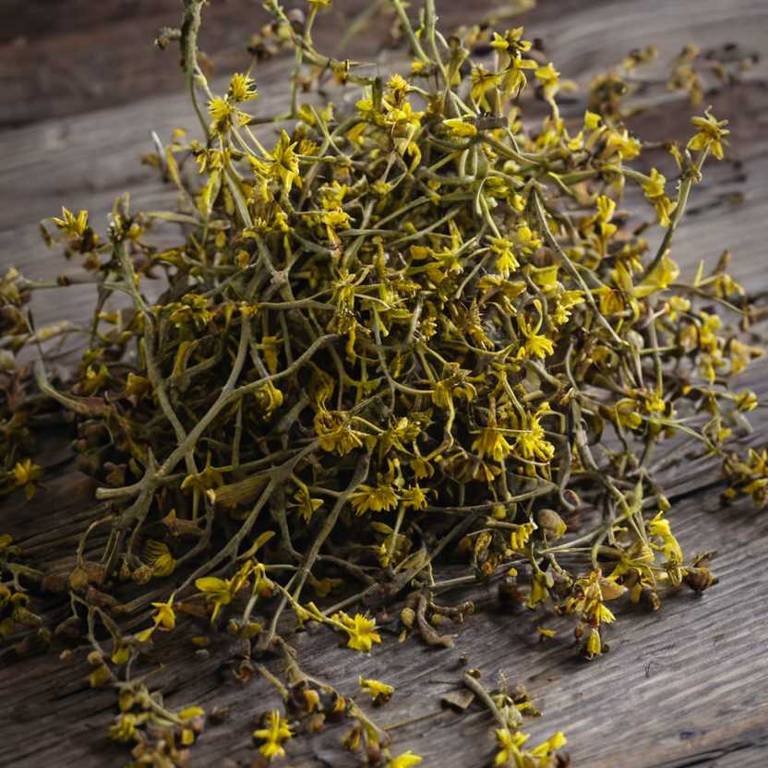Witch Hazel (Hamamelis virginiana)
Witch Hazel (Hamamelis virginiana) is a member of the Hamamelidaceae family, native to Eastern United States, Eastern North America, and Southeastern Canada. Traditionally, its bark, resin, and leaves have been used for infusions, decoctions, and poultices.
This herb is particularly valued for its astringent, anti-inflammatory, and tonic actions, and has a long history of use in native american herbal medicine, european herbal medicine, and traditional chinese medicine.

Quick Facts / Key Information
| Common Name | Witch Hazel |
|---|---|
| Scientific Name | Hamamelis virginiana |
| Plant Family | Hamamelidaceae |
| Genus | Hamamelis |
| Species | virginiana |
| Native Range | Eastern United States, Eastern North America, Southeastern Canada |
| Plant Parts Used | Bark, Resin, Leaves |
| Primary Medicinal Actions | Astringent, Anti-Inflammatory, Tonic |
| Primary Traditional Systems | Native American Herbal Medicine, European Herbal Medicine, Traditional Chinese Medicine |
| Historical Preparation Methods | Infusion, Decoction, Poultice |
Botanical Identity
- Scientific Name
- Hamamelis virginiana
- Common Name
- Witch Hazel
- Synonyms / Alternative Names
- American Witch Hazel, Virgin'S Hazelnut, Hamamelis
- Plant Family
- Hamamelidaceae
- Genus
- Hamamelis
Botanical Description
- Growth Habit
- Perennial herbaceous plant.
- Height
- It typically grows to a height of 3 to 8 meters.
- Leaves
- Simple leaves with serrated margins, upper surface yellow-green, lower surface pale green, bearing prominent stomatal bands along the midrib.
- Flowers
- Flowers are yellow with two pairs of elongated petals arranged in a clustered inflorescence, exhibiting actinomorphic symmetry, and bearing distinctive claw-like structures at the base of each petal.
- Stems
- Erect, woody, simple branching, glabrous surface, four-ranked leaf scars.
Traditional Uses / Historical Use
Traditional Systems
- Native American Herbal Medicine
- European Herbal Medicine
Historical Preparation Methods
- Infusion
- Decoction
- Poultice
- Tincture
Medicinal Actions
- Astringent
- In herbal literature, noted as a cooling astringent, for skin-related applications.
- Anti-inflammatory
- Traditionally described as a mild anti-inflammatory, for general calming applications.
- Tonic
- Commonly referenced as a calming tonic, for long-term use contexts.
Active Compounds
- Tannin
- A class of polyphenolic compounds commonly found in bark, leaves, and seeds.
- Flavonoid
- A group of naturally occurring compounds commonly present in many flowering plants.
- Phenolic Acid
- Organic acids commonly occurring as part of plant secondary metabolism.
- Coumarin
- A class of aromatic organic compounds found in many plant species.
Modern Research Overview
Contemporary research on this plant includes areas such as chemical analysis, laboratory-based studies, and observational research. Detailed summaries of published findings are not included at this stage and will be added during future content updates.
Safety & Contraindications
- General Precautions
- The use of this herb may warrant general caution in certain situations.
- Contraindications
- Contraindications for this herb are not clearly established in available sources.
- Allergies
- There is insufficient evidence to determine whether this herb commonly causes allergic reactions.
- Drug Interactions
- Available information regarding interactions with pharmaceutical drugs is limited.
- Toxicity
- Toxicity related to this herb has been documented in available sources.
- Pregnancy & Breastfeeding
- Use during pregnancy or breastfeeding has not been clearly established in available sources.
Preparation & Usage Methods
- Infusion
- Water is poured over plant material and allowed to steep before straining.
- Decoction
- Plant parts are gently boiled in water to release soluble constituents.
- Poultice
- Plant parts are crushed or moistened and placed directly on the body.
- Tincture
- Tinctures are liquid extracts produced through alcoholic maceration.
- Extract
- This method isolates plant compounds using alternative solvents.
Growing, Harvesting & Storage
Growing / Cultivation
- Soil
- Prefers loamy soil with well-drained conditions. Typically grows best in organically rich soils.
- Sunlight
- Thrives in partial shade. Tolerates full sun to partial shade.
- Watering
- Prefers seasonally moist soils. Tolerates variable moisture levels.
Medical Disclaimer
The information provided on this page is for educational and informational purposes only. It is not intended to diagnose, treat, cure, or prevent any medical condition. Always consult a qualified healthcare professional before using any herb for medicinal purposes.